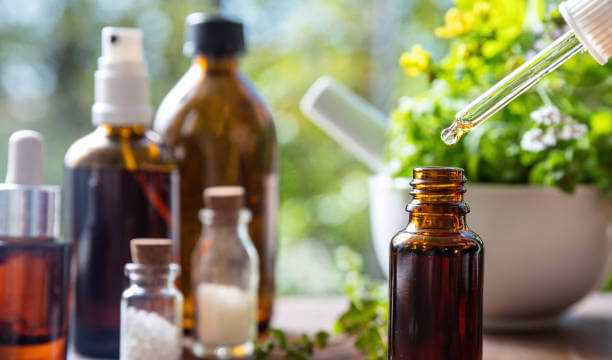Cavities are one of the most common dental problems that affect millions of people around the world. They are small holes or openings in the enamel, the hard outer layer of your teeth. Cavities can cause tooth decay, pain, sensitivity, infection, and even tooth loss if left untreated.
Fortunately, there are some effective home remedies that can help you remove cavities at home and prevent them from getting worse. These remedies are natural, safe, and easy to use. They can also save you money and time by avoiding expensive and invasive dental procedures.
However, before we dive into these remedies, let’s first understand what cavities are, how they form, and why it’s important to detect them early.
Key Takeaways:
- Cavities, also known as dental caries or tooth decay, can develop due to the accumulation of bacteria and plaque on teeth.
- Early detection of cavities is crucial for preventing further damage and complications, so regular dental check-ups are essential.
- 7 Effective Remedies to Remove Cavities at Home:
- Oil pulling can reduce harmful bacteria in the mouth.
- Saltwater rinses can help kill bacteria and soothe gum irritation.
- Xylitol gum can promote saliva production and reduce cavity risk.
- Turmeric paste may have antibacterial properties and can be used topically.
- Fluoride-free toothpaste can be a safer alternative for those concerned about fluoride exposure.
- Aloe vera gel can soothe gum inflammation.
- A balanced diet with cavity-fighting foods is essential for oral health.
- Proper oral hygiene practices, such as regular brushing, flossing, and mouthwash use, are vital for cavity prevention.
- While these home remedies can be beneficial, they are not a substitute for professional dental care. Consult a dentist if you suspect cavities or experience persistent oral health issues.
- Maintaining a cavity prevention routine and adopting a tooth-friendly diet can contribute to better oral health and a reduced risk of cavities.
What Are Cavities?
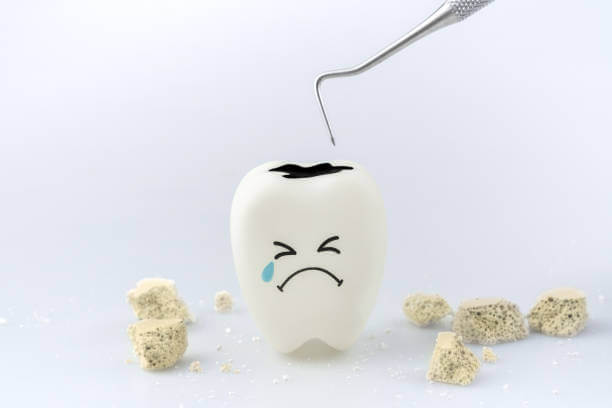
Cavities are also known as dental caries or tooth decay. They are caused by bacteria that live in your mouth and feed on the sugars and starches in your food. These bacteria produce acids that erode the enamel and create holes in your teeth.
The enamel is the hardest substance in your body, but it can be damaged by acid attacks over time. Once the enamel is breached, the bacteria can reach the dentin, the softer layer under the enamel. The dentin contains nerves and blood vessels that can cause pain and sensitivity when exposed to hot, cold, or sweet stimuli.
If the cavity is not treated, it can progress to the pulp, the innermost layer of your tooth that contains nerves and blood vessels. The pulp can become inflamed and infected, leading to severe pain and swelling. This condition is called pulpitis and may require a root canal treatment or tooth extraction.
Importance of Early Cavity Detection

Detecting cavities in their early stages is crucial for preventing further damage and complications. The earlier you treat a cavity, the easier and cheaper it will be to fix it. You will also avoid unnecessary pain and discomfort.
The best way to detect cavities early is to visit your dentist regularly for check-ups and cleanings. Your dentist can examine your teeth and use tools such as X-rays or probes to find hidden cavities that you may not notice yourself.
You should also pay attention to any signs or symptoms that may indicate a cavity, such as:
- Toothache or sensitivity
- Dark spots or holes in your teeth
- Bad breath or foul taste in your mouth
- Difficulty chewing or biting
- Bleeding or swollen gums
If you notice any of these signs or symptoms, you should consult your dentist as soon as possible. Do not ignore or delay seeking professional help, as this can worsen your condition and increase your risk of infection.
How to Remove Cavities at Home with These Natural Remedies
While visiting your dentist is the best way to treat cavities, there are some home remedies that can help you remove cavities at home and prevent them from developing further. These remedies are based on natural ingredients that have antibacterial, anti-inflammatory, and remineralizing properties.
However, keep in mind that these remedies are not a substitute for professional dental care. They can only help you manage minor cavities or slow down their progression. You should always consult your dentist before using any home remedy and follow their instructions carefully.
Here are 7 effective home remedies that can help you remove cavities at home:
1. Oil Pulling: A Simple and Effective Way to Remove Cavities at Home
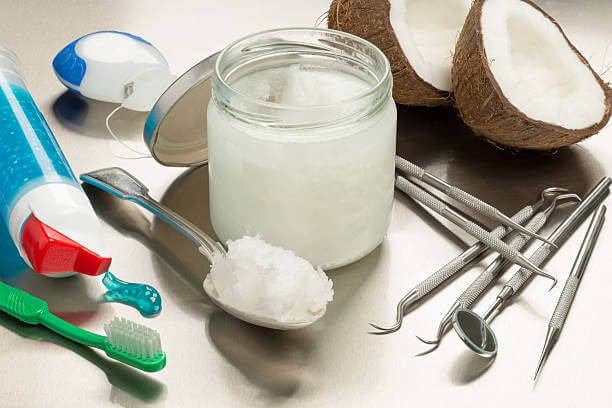
Oil pulling is an ancient Ayurvedic practice that involves swishing oil around your mouth for 15 to 20 minutes every morning before brushing your teeth. Oil pulling can help remove plaque, bacteria, toxins, and food particles from your mouth and teeth. It can also reduce inflammation, improve gum health, and prevent bad breath.
Oil pulling can also help prevent cavities by strengthening the enamel and remineralizing the teeth. Some studies have shown that oil pulling can reduce plaque-induced gingivitis and dental caries.
To do oil pulling, you will need:
- A tablespoon of organic coconut oil (or sesame oil or sunflower oil)
- A glass of warm water
How to use:
- Put the oil in your mouth and swish it around for 15 to 20 minutes. Do not gargle or swallow the oil.
- Spit out the oil into a trash can or a paper towel. Do not spit it into the sink or toilet as it may clog the pipes.
- Rinse your mouth with warm water.
- Brush your teeth as usual.
- Repeat this process every morning before brushing your teeth.
2. Saltwater Rinse: A Cheap and Easy Remedy to Remove Cavities at Home
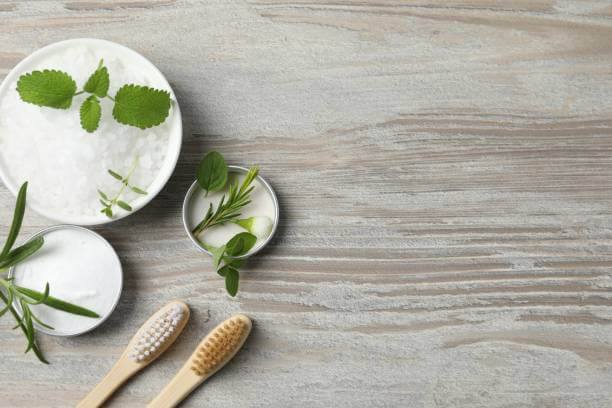
Saltwater rinse is another simple and effective home remedy that can help you remove cavities at home. Saltwater rinse can help kill bacteria, reduce inflammation, soothe pain, and promote healing in your mouth. It can also help balance the pH level of your mouth and prevent the growth of acid-producing bacteria.
To do a saltwater rinse, you will need:
- A teaspoon of salt
- A glass of warm water
How to use:
- Dissolve the salt in the warm water and stir well.
- Swish the solution around your mouth for a few minutes, focusing on the affected tooth or area.
- Spit out the solution and rinse your mouth with plain water.
- Repeat this process 2 to 3 times a day, especially after meals and before bed.
3. Xylitol Gum: A Sweet and Healthy Solution to Remove Cavities at Home
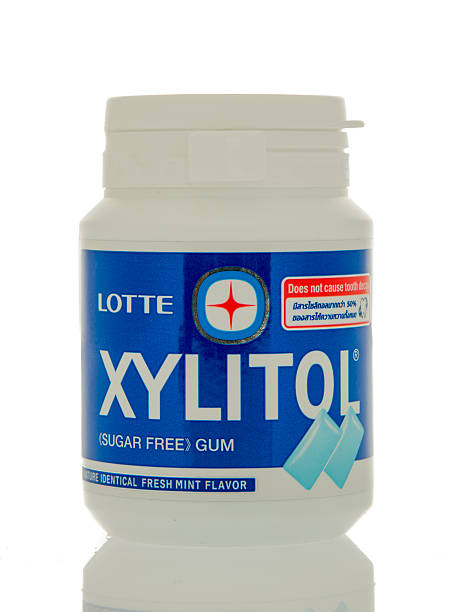
Xylitol is a natural sweetener that can help prevent cavities by inhibiting the growth of bacteria that cause tooth decay. Xylitol can also increase saliva production, which can help wash away food particles, neutralize acids, and remineralize the teeth.
Xylitol gum is a convenient and easy way to use xylitol for cavity prevention. Chewing xylitol gum can help stimulate saliva flow, reduce plaque, and protect the enamel. Some studies have shown that chewing xylitol gum can reduce dental caries by up to 60%.
To use xylitol gum, you will need:
- A piece of xylitol gum (preferably sugar-free and natural)
How to use:
- Chew the gum for 10 to 15 minutes after meals and snacks.
- Spit out the gum and rinse your mouth with water.
- Repeat this process 3 to 5 times a day.
4. Turmeric Paste: A Spicy and Powerful Remedy to Remove Cavities at Home
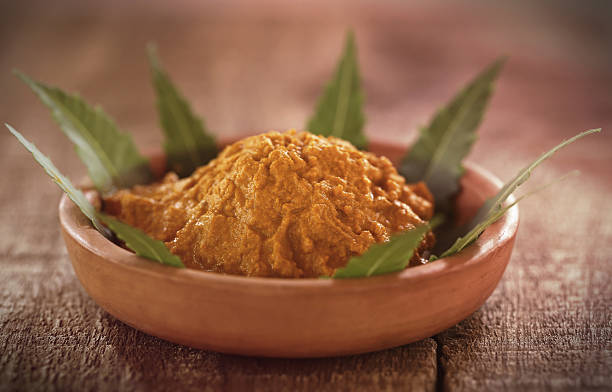
Turmeric is a spice that has powerful anti-inflammatory, antibacterial, and antioxidant properties. Turmeric can help fight infection, reduce pain, and heal wounds in your mouth. It can also help prevent cavities by inhibiting the growth of bacteria that cause tooth decay.
Turmeric paste is a simple and effective way to use turmeric for cavity prevention. Applying turmeric paste to your teeth can help remove plaque, strengthen the enamel, and whiten your teeth.
To make turmeric paste, you will need:
- A teaspoon of turmeric powder
- A few drops of water
How to use:
- Mix the turmeric powder and water to form a thick paste.
- Apply the paste to your teeth using a toothbrush or your finger.
- Leave it on for 5 to 10 minutes.
- Rinse your mouth with water and brush your teeth as usual.
- Repeat this process once or twice a week.
5. Fluoride-Free Toothpaste: A Safer and Healthier Alternative to Remove Cavities at Home
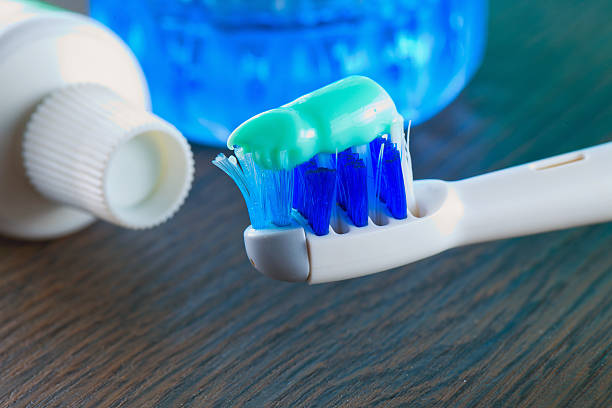
Fluoride is a mineral that is commonly added to toothpaste and water to prevent cavities. Fluoride can help strengthen the enamel and remineralize the teeth. However, fluoride can also have some negative effects on your health, such as causing dental fluorosis, thyroid problems, and neurological disorders.
Fluoride-free toothpaste is a safer and healthier alternative to fluoride toothpaste. Fluoride-free toothpaste can help prevent cavities by using natural ingredients that have antibacterial, anti-inflammatory, and remineralizing properties. Some examples of natural toothpaste ingredients are baking soda, coconut oil, charcoal, neem, clove, peppermint, etc.
To use fluoride-free toothpaste, you will need:
- A tube of fluoride-free toothpaste (preferably organic and natural)
- A toothbrush
How to use:
- Squeeze a pea-sized amount of toothpaste onto your toothbrush.
- Brush your teeth gently for 2 to 3 minutes, covering all surfaces of your teeth.
- Spit out the toothpaste and rinse your mouth with water.
- Repeat this process twice a day, in the morning and at night.
6. Aloe Vera Gel: A Soothing and Healing Remedy to Remove Cavities at Home
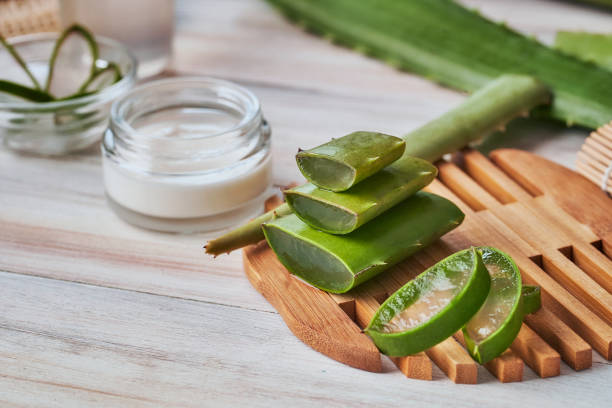
Aloe vera is a plant that has many health benefits for your skin, hair, and body. Aloe vera can also help prevent cavities by killing bacteria, reducing inflammation, soothing pain, and healing wounds in your mouth. Aloe vera gel can also help protect the enamel and remineralize the teeth.
Aloe vera gel is easy to use for cavity prevention. Applying aloe vera gel to your teeth can help remove plaque, prevent infection, and improve gum health.
To use aloe vera gel, you will need:
- A fresh aloe vera leaf (or a bottle of pure aloe vera gel)
- A knife
- A spoon
How to use:
- Cut off a piece of aloe vera leaf and peel off the skin with a knife.
- Scoop out the gel with a spoon and store it in an airtight container in the refrigerator.
- Apply the gel to your teeth using a toothbrush or your finger.
- Leave it on for 10 to 15 minutes.
- Rinse your mouth with water and brush your teeth as usual.
- Repeat this process once or twice a day.
7. Diet and Nutrition: The Key to Prevent and Remove Cavities at Home

Diet and nutrition play a vital role in preventing cavities and maintaining oral health. What you eat and drink can affect the pH level of your mouth, the amount of plaque and bacteria, and the strength of your enamel and teeth.
To prevent cavities, you should follow a balanced and healthy diet that includes:
- Foods rich in calcium, phosphorus, and vitamin D, such as milk, cheese, yogurt, eggs, fish, nuts, seeds, etc. These nutrients can help strengthen and remineralize your teeth.
- Foods high in fiber, such as fruits, vegetables, whole grains, beans, etc. These foods can help stimulate saliva production, which can help wash away food particles, neutralize acids, and remineralize your teeth.
- Foods that contain natural antibacterial agents, such as garlic, onion, ginger, turmeric, etc. These foods can help fight infection and inflammation in your mouth.
- Foods that have a high water content, such as cucumber, celery, lettuce, etc. These foods can help hydrate your mouth and dilute the acids.
To prevent cavities, you should also avoid or limit:
- Foods and drinks that are high in sugar, such as candy, chocolate, soda, juice, etc. Sugar can feed the bacteria that cause tooth decay and create acids that erode the enamel.
- Foods and drinks that are acidic, such as citrus fruits, vinegar, wine, etc. Acidic foods and drinks can lower the pH level of your mouth and weaken the enamel.
- Foods and drinks that are sticky or hard, such as dried fruits, caramel, popcorn kernels, ice cubes, etc. Sticky or hard foods and drinks can stick to your teeth and cause damage or cracks.
Our Recommendation
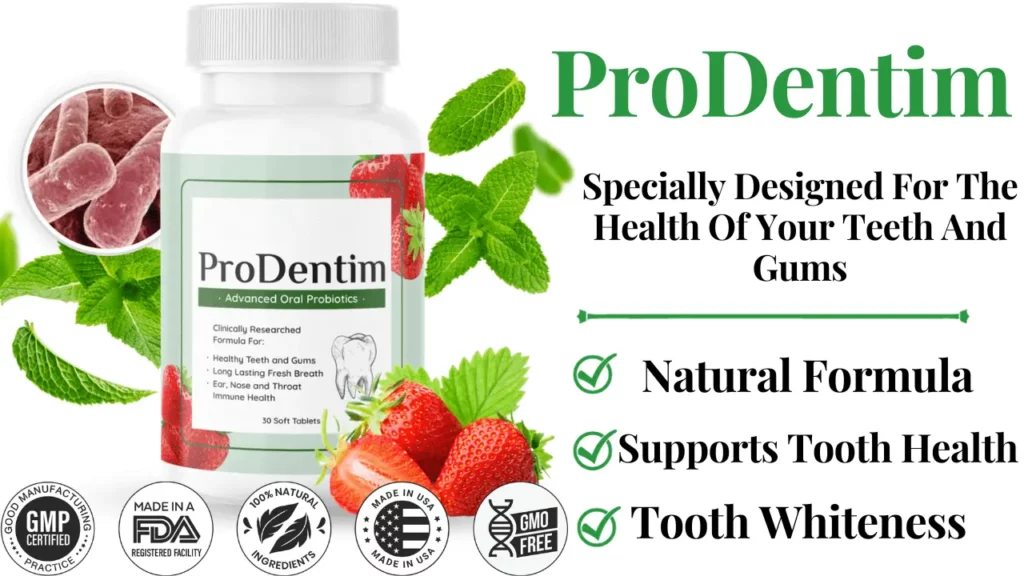
Oral Hygiene Tips
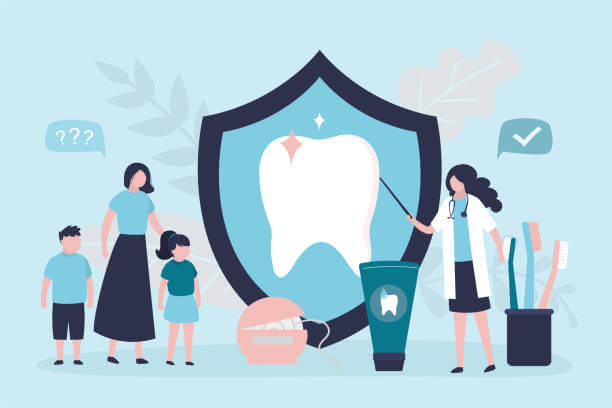
In addition to using these home remedies to remove cavities at home, you should also follow some general oral hygiene tips to prevent cavities and keep your teeth healthy. Here are some oral hygiene tips that you should follow:
Read Also : Home Doctor Book: Your Ultimate Guide To Health Management
When to Consult a Dentist
While these home remedies can help you remove cavities at home and prevent them from getting worse, they are not a substitute for professional dental care. You should always consult your dentist before using any home remedy and follow their instructions carefully.
You should also see your dentist immediately if you experience any of the following signs or symptoms:
- Severe or persistent toothache or sensitivity
- Swelling or pus around your tooth or gum
- Fever or malaise
- Difficulty opening your mouth or swallowing
- Broken or chipped tooth
- Loose or missing filling or crown
These signs or symptoms may indicate a serious dental problem that requires urgent attention. Do not ignore or delay seeking professional help as this can worsen your condition and increase your risk of complications.
Conclusion
Cavities are common dental problems that can cause pain, infection, and tooth loss if left untreated. However, there are some effective home remedies that can help you remove cavities at home and prevent them from developing further.
These home remedies are based on natural ingredients that have antibacterial, anti-inflammatory, and remineralizing properties. They can also save you money and time by avoiding expensive and invasive dental procedures.
However, these home remedies are not a substitute for professional dental care. You should always consult your dentist before using any home remedy and follow their instructions carefully. You should also visit your dentist regularly for check-ups and cleanings.
By following these home remedies and oral hygiene tips, you can prevent cavities and keep your teeth healthy and strong.
FAQ
Q: What are the best home remedies to remove cavities at home? A: There are many home remedies that can help you remove cavities at home, but some of the most effective ones are oil pulling, salt water rinse, xylitol gum, turmeric paste, fluoride-free toothpaste, aloe vera gel, and diet and nutrition. These remedies can help kill bacteria, reduce inflammation, soothe pain, and remineralize your teeth.
Q: How long does it take to remove cavities at home? A: The time it takes to remove cavities at home depends on several factors, such as the size and location of the cavity, the severity of the tooth decay, and the frequency and effectiveness of the home remedies. Generally, it may take several weeks or months to see noticeable results. However, you should not rely on home remedies alone and visit your dentist regularly for check-ups and treatments.
Q: Can you reverse cavities naturally? A: Yes, you can reverse cavities naturally if they are in their early stages and have not reached the dentin or pulp of your tooth. You can do this by using natural ingredients that have antibacterial, anti-inflammatory, and remineralizing properties, such as oil pulling, salt water rinse, xylitol gum, turmeric paste, fluoride-free toothpaste, aloe vera gel, and diet and nutrition. These ingredients can help restore the enamel and prevent further damage.
Q: How can I prevent cavities from forming in the first place? A: The best way to prevent cavities from forming in the first place is to follow good oral hygiene practices and visit your dentist regularly. You should also avoid or limit foods and drinks that are high in sugar or acid, such as candy, chocolate, soda, juice, citrus fruits, vinegar, wine, etc. These foods and drinks can feed the bacteria that cause tooth decay and create acids that erode the enamel.
Q: Are there any side effects or risks of using home remedies to remove cavities at home? A: Most home remedies to remove cavities at home are safe and natural, but some of them may have some side effects or risks if used incorrectly or excessively. For example:
- Oil pulling may cause nausea, diarrhea, or allergic reactions in some people.
- Saltwater rinse may cause dry mouth or irritation in some people.
- Xylitol gum may cause bloating, gas, or diarrhea in some people.
- Turmeric paste may stain your teeth or clothes if not rinsed properly.
- Fluoride-free toothpaste may not provide enough protection against cavities for some people.
- Aloe vera gel may cause allergic reactions or skin irritation in some people.
Therefore, you should always consult your dentist before using any home remedy and follow their instructions carefully. You should also stop using any home remedy if you experience any adverse effects or discomfort.
References:
: Mickenautsch S., Leal S.C., Yengopal V., Bezerra A.C., Cruvinel V. (2007). Sugar-free chewing gum and dental caries – a systematic review. Journal of Applied Oral Science, 15(2), 83-88.
: Peckham S., Awofeso N. (2014). The health effects of water fluoridation. British Medical Bulletin, 110(1), 39-51.
: Asokan S., Emmadi P., Chamundeswari R. (2009). Effect of oil pulling on plaque induced gingivitis: a randomized, controlled, triple-blind study. Indian Journal of Dental Research, 20(1), 47-51.

